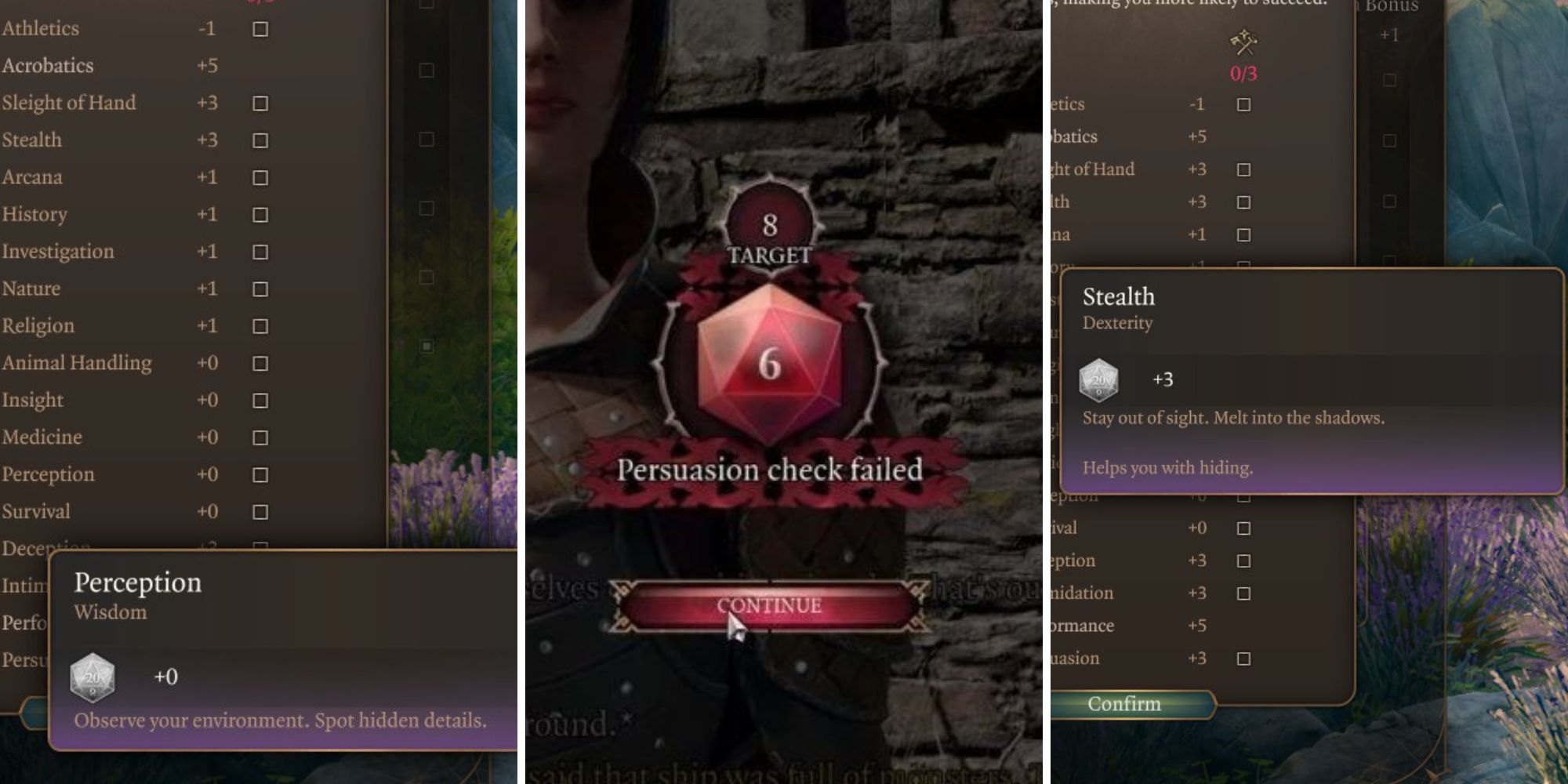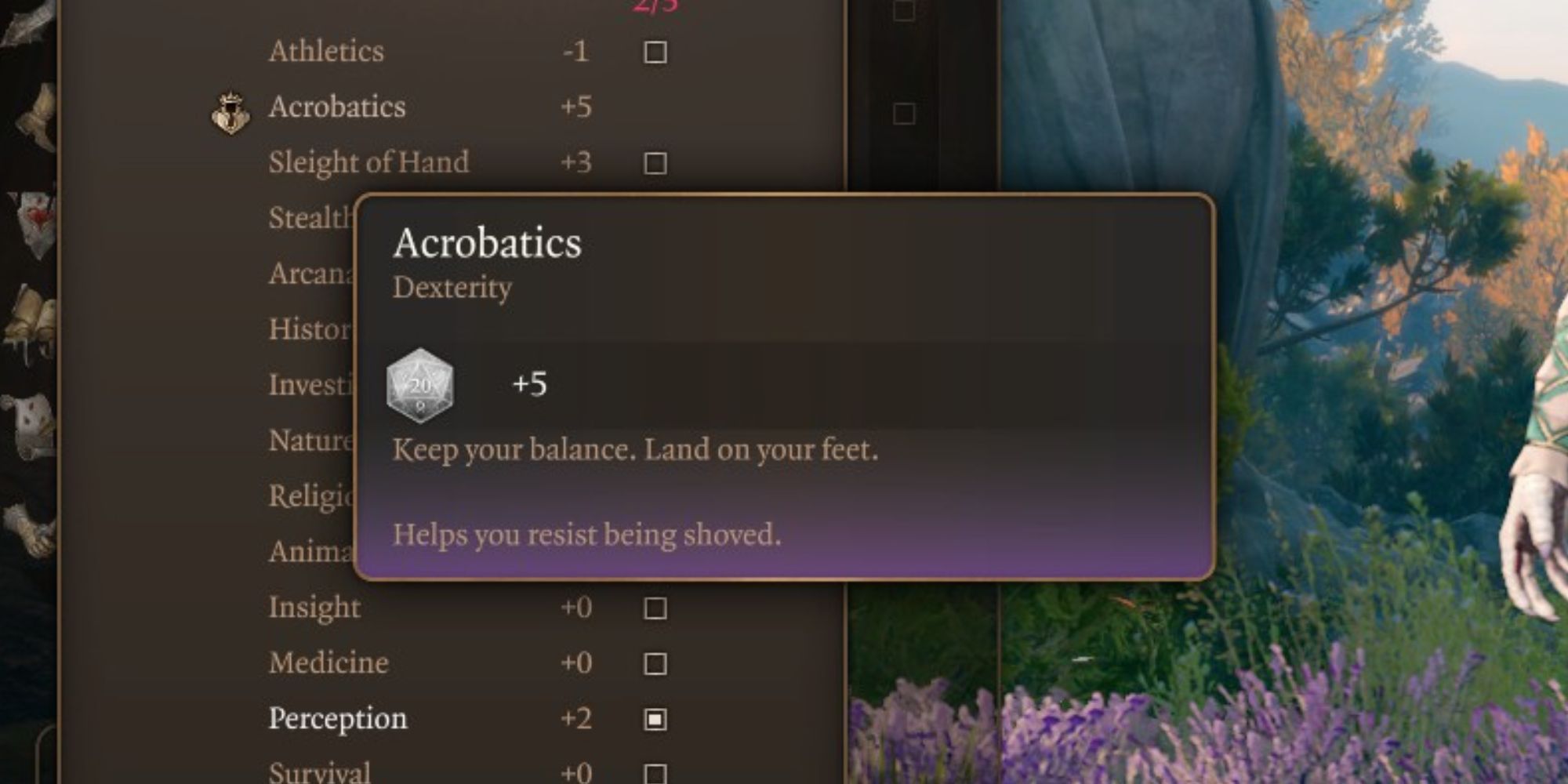Baldur's Gate 3 follows a similar structure to its tabletop RPG counterpart Dungeons & Dragons, where players will find themselves proficient in certain skills. While some of these skills are used in combat, others will assist the player in dialogue interactions with NPCs.
Every choice players make during character customization, from the class to the background, will influence what skills the character has proficiency in. There are eighteen skills available, and each character can only be proficient in a few. With that in mind, these are by far the best skills a player should be proficient in that will help them in their future explorations.
8 History
While some players may consider History boring or lackluster in the real world, History in Baldur's Gate 3 (BG3) can give players much-needed context when exploring the world around them. Characters that are proficient in History, an Intelligence-based skill, are more likely to recall events from the past that they have learned about.
This can help a player understand some encounters that can occur. For example, in Act One, the player can step foot into a ruined temple. With a proficiency in History, the player is likely to learn that this temple was once for a god that is no longer worshiped in BG3.
7 Acrobatics
Dexterity is an attribute that many classes are likely to have a high score in, especially those that take part in ranged combat such as Rangers. When it comes to skills governed by Dexterity, players should focus their proficiency into Acrobatics. Characters that proficient in this are likely to land on their feet during agile moments. What's more, it is incredibly useful in combat.
An aspect of Baldur's Gate 3 is being shoved while in a battle. If a player leaves themselves open to this, they are likely to fall to their death. Thankfully, those proficient in Acrobatics are less likely to be pushed over as they remain steadfast.
6 Insight
Combat isn't the only place where proficiencies are important, and this Wisdom-based skill is a prime example. When engaging in conversations with NPCs, a player may find themselves listening to a lie. With a high score in Insight, the game's narrator will let the player know if the individual they are talking to appears nervous, or seems as if they are hiding something.
Moments like this can open more options in the dialogue that players may have never encountered otherwise. This can go even further than conversations. In certain situations, the Insight skill can, for example, alert the player that they are about to walk into a trap.
5 Investigation
While exploring in BG3, players are likely to encounter various mysteries they may need to look into. Being proficient in Investigation will help players when they are searching for clues in these situations. A player may still be able to come to a solution without this Intelligence-based skill, but they are far more likely to succeed if they are proficient.
Investigation may appear that it wouldn't be used very often, but like History it can add context to certain scenarios. Uncovering clues before reaching danger is sure to make some players feel as if they have prepared themselves for the possible fight ahead.
4 Athletics
Athletics is the only skill connected to the Strength attribute; the only other thing this attribute is used for it is used for melee weapons. However, this skill is still incredibly useful in combat, with a similar role to that of Acrobatics.
Once again players are better defended against being shoved when they are proficient in Athletics. Apart from this, the skill also helps the player when shoving their opponents. This means the enemy gets a taste of their own medicine of being thrown to their deaths when they get too close to the edge.
3 Persuasion
Being charismatic is almost as important as being able to battle in Baldur's Gate 3. Many dangerous or unpleasant situations can be avoided if the player knows how to use their words. Persuasion is one of many skills connected to the Charisma attribute, though it will likely be the one that's used the most.
Players can use their powers of persuasion to get NPCs to look the other way during certain scenarios, or give them information without ever needing to hand a single gold coin over. Sometimes the easiest solution to a problem is just talking it out.
2 Stealth
Any player can crouch around and try to stay hidden, but those that are proficient in Stealth can even hide in plain sight. Stealth, which is connected to the Dexterity attribute, is arguably one of the best skills for a player to be proficient in as it goes a lot further than being used for criminal means.
Players can ambush their opponents by sneaking into the room they find themselves in and getting to the upper ground. Like Persuasion, being skilled in Stealth can also allow the player to avoid fights entirely as they easily sneak past dangerous foes that may easily dispatch the player and their party.
1 Perception
Out of all the skills available in Baldur's Gate 3, no matter what class a player has chosen, they should always be proficient in the Wisdom-based skill perception. This is by far one of the most important skills of all, as it allows the player to be aware of their surroundings at all times.
Perception can come in handy in many situations such as noticing small details of the environment that may reveal a secret or moments in conversation where a character is attempting to distract the player while they get pickpocketed.
Baldur's Gate 3 is available now on PC. A PlayStation 5 version will be released September 6.









